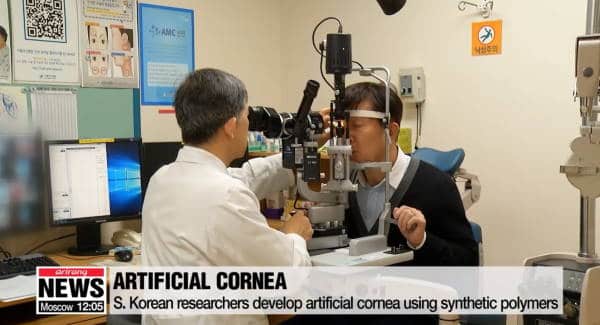This man is suffering from cornea damage caused by the side effect of medication. He has received three sets of transplants but was unable to regain his eyesight due to organ rejection.
Rejection occurs in about 36 percent of people within five years of a corneal transplant.
The possibility of rejection increases in young patients and those who need multiple procedures because new blood vessels grow in the cornea.
“Blood vessel growth comes with inflammatory cells and tends to cause rejection. And a damaged eye surface can’t generate tears, so transplants are quickly destroyed.” Said Tchah Hung-Won, Professor of Ophthalmology, Asan medical center.

This is why a Korean research team has created an artificial cornea using synthetic polymers.
Unlike a donor’s cornea which the immune system sometimes causes rejection, a synthetic cornea will not be recognized as a foreign object and makes the implant safer.
What’s better, because it can be mass produced, the long-wait for donors is no longer necessary. The artificial cornea has proved safe and effective in vision recovery during animal testing.
Clinical trials are set to take place later this year.


Comments